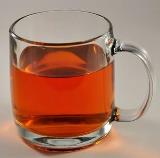The two types of fertilizers - inorganic and organic
In the broadest sense all types of fertilizers include any substance, living or inorganic which aids in plant growth and health. We exclude water, CO2, and sunlight.
Types of Fertilizers - Commercial
During the 1800's Justus von Liebig, considered by many to be the father of the fertilizer industry, made substantial contributions toward the organization and development of organic chemistry laboratory methods. He discovered that plants need nitrogen to survive. A basic assumption developed - to maintain plant health simply return to the soil what the plant removes.
With commercial types of fertilizers the following are identified as necessary for plant growth:
- Primary nutrients - nitrogen (N), phosphorus (P), and potassium (K)
- Secondary nutrients - calcium (Ca), magnesium (Mg), sulfur (S)
- Trace minerals) - boron (B), chlorine (Cl), copper (Cu), iron (Fe), manganese (Mn), molybdenum (Mo), zinc (Zn), and selenium (Se)
Types of Fertilizers - Organic
Generally the term “organic fertilizer” is used to refer to fertilizer that has gone through minimal processing, where nutrients are still found in their natural forms. This includes manure and compost, which you can prepare yourself, along with items which can be purchased. Inorganic fertilizers generally refer to fertilizers that are synthetic or artificial, and generally are manufactured from petroleum products (yes, fertilizer that is made from crude oil).
In the last 60 to 70 years, a phenomenon has happened in farming in the USA. Farmers started using Inorganic Fertilizer instead of
Organic Fertilizer. From that point we have seen a gradual worsening of soils, resulting in increased
insect, disease and weed problems.
Inorganic Fertilizers are “water soluble”. They are minerals in concentrated form that are readily available to the plant. Unlike most organic fertilizers, they don’t need the help of the soil to break them down so the plant can utilize them. They only need the soil to hold them until the plant takes them in. Water soluble inorganic fertilizers do nothing to contribute to the health of the soil. So over time, soils become run down and diseased, and become ever more limited in the types of crops they will grow.
Types of Fertilizers - Why Farmers Choose Inorganic Fertilizers
Soils and plants need so many more nutrients than Nitrogen, Phosphorus and Potassium (also called NPK). But research has shown that it is these three that are the primary nutrients needed to produce bigger yields. To the farmer, with all the expenses involved in farming, coupled together with low crop prices, if he doesn’t produce larger yields, he very well won’t be able to make enough money to stay in business.
The issue of
Organic vs. Inorganic Fertilizer is the same issue faced by human beings. Do we live a healthy lifestyle and eat nutritious foods, or do we indulge ourselves with empty calories and then count on drugs to save us from the consequences? Because inorganic fertilizers do not supply most of the micro-nutrients needed by the soil and plants, soils become out of balance, and disease, insect problems and weed problems multiply. To counter these, the inorganic farmer utilizes poisons (insecticides, pesticides, herbicides) to treat these symptoms. Of course, these are highly detrimental to the soil. Along with killing the bad, they also kill the many beneficial insects, algae, nematodes, flagellates, amoebae, ciliates, fungi and bacteria in the soil.
Types of Fertilizers - Nutritious Foods
Inorganic fertilizers may grow a greater volume of food, but organic fertilizers grow more nutritious food. Both plants and people need a host of micro-nutrients. Inorganic fertilizers only supply a handful of these nutrients, while organic fertilizers provide many more.
It has been said that blood plasma and plant sap have almost the identical proportion of minerals as are found in the ocean. In fact, one of the best sources for micro-nutrients is ocean water, where all 76 naturally occurring minerals are present in perfect balance. This is organic fertilizer at it’s best. When you give plants and soil the nutrients they need, it means healthier plants, and greater nutrition for you.
Organic and Inorganic Fertilizer - Your Choice
If you choose to use only inorganic fertilizers, you are asking for trouble. Why not add in some organic fertilizers as well. Better yet, forget the inorganic fertilizers, and educate yourself in the use of organic fertilizers. Our research has shown that when used properly, they will result in less insect damage, fewer pet injuries, fewer diseases, and less weed problems, while giving you a bountiful harvest of highly nutritious foods that have a great shelf life.
Ask A Question
Return from Types of Fertilizers to Eagle Wood Home



